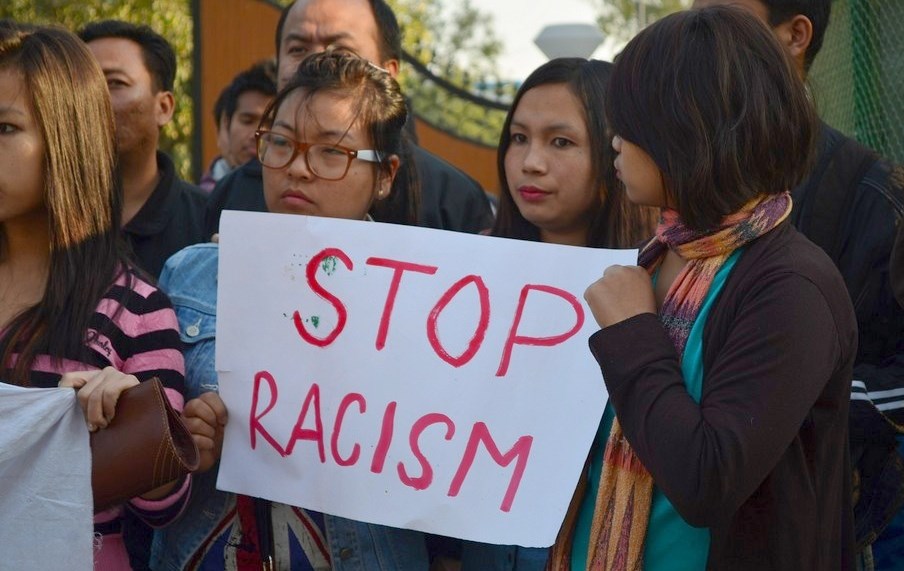Days after the US multinational company Johnsons and Johnsons announced their plans of halting the production of their ‘Clean and Clear’ fairness range of products in the context of Black Lives Movement in the United States, India’s very own Hindustan Unilever announced its decision to rebrand one of its best selling creams ‘Fair and Lovely’.
The brutal killing of George Floyd and the sustained Black Lives Matter Movement that followed, raised an important debate around the world on systemic racism. Over the last couple of weeks there has been a constant uproar all over the world against systemic violence against dark skinned or non-whites and the kind of challenges that lie before us to make the world more racially egalitarian and justice oriented.
It is in this context that the recent announcement by a well-known Indian brand Hindustan Unilever to drop the word ‘Fair’ from its brand name, while advertising in a way that not just ‘fair’ women but women of diverse skin tones are celebrated, is receiving diverse reactions from people.
But the most important question that we really ought to ask is whether instead of dropping the word ‘Fair’ from the name of the cream, wouldn’t it be a better idea to drop the product altogether?
In a country which is excessively obsessed with fair skin and these fairness products selling in the market for decades, it is difficult to believe that such tokenism will yield any results.
But anyhow, it is good to see that after world wide protests and a renewed sense of responsibility towards anti-racial struggles, companies have finally developed a conscience about their role in actively contributing to beauty standards and fixation with the fairness of skin, especially in a country like ours.
But what we must acknowledge at the earliest is that despite all the campaigns that claim that people of all skin tones are beautiful or more specifically ‘dark is beautiful’, the prejudice and stigma attached to coloured/non-whites persists in our society like a deeply entrenched disease.
You would remember that it was only recently that Bollywood actresses such as Sonam Kapoor, Disha Patani and Priyanka Chopra came to the forefront and clearly expressed their support for the Black Lives Matter Protest in the US. But wouldn’t we look deeper into the politics of presence in this context and ask why our celebrities choose selective activism over concrete action or why such activism runs quite contrary to the roles they choose to pick for their movies?
While the extension of support to the important Black Lives Matter Movement in the US is extremely important, why are they mum against a culture industry that sells and reproduces the ‘fair skin mythology’ all the time, why are they mum on issues back home and celebrities endorsing fairness and brightness creams? What except hypocrisy can we see in such selective political awakening?
The popular culture that we are consuming all the time is extremely racist, obsessed with white skin and almost takes the ‘fair skin mythology’ for granted.
For generations we have been told that a dark skinned woman can only find meaning and dignity in her existence if she ‘upgrades’ to the lighter end of the absurd fairness scale. No matter whether she wants a job, a lover or even wants to just regain her self-esteem back – she must strive to become ‘fair’. Application of fairness products(more specifically the famous Fair and Lovely) seems to be the final solution to all kinds of self-worth issues that women seem to face.
What concrete benefits would it render even if the word ‘fair’ is dropped for now, will it change the damage that the ‘fairness’ obsessed mentality has done to countless Indian women?
There are thousands of local and branded products in the Indian market that promise to make one fair but the cream is question is the most widely recognised cultural symbol depicting the cultural fixation that characterises Indian society and the plague that renders it sick. Prominent Bollywood names have endorsed the product and what is more, the beauty industry presented the India market with even a male version of the product named ‘Fair and Handsome’ which was endorsed by Shah Rukh Khan himself.
In most Indian homes, young girls and boys have been trained to believe that ‘fair’ skin is more beautiful and attractive than dull skin, for women this obsession has meant forceful application of home-made concoctions, restriction on caffeine and basking out in the sun or even frequent visits to doctors to get themselves ‘fixed’.
The kind of marriage proposals that a woman gets, the way she is treated at office by colleagues and her whole destiny are projected to be dependent on ‘fairness’. In fact, the fairness industry draws on popular insecurities in India and earns profits worth millions annually.
It is no wonder, that although quality medicines may not always be available in India’s countryside, you will find ‘Fair and Lovely’ being sold even at the local grocery outlet.
It is one product that permeates even to India’s most rural corners and cuts across caste, class and educational qualifications of consumers. Following in the footsteps of a new kind of awareness, even websites such as shaadi.com have recently deactivated a filter that allowed people to search potential partners on the basis of skin colour. But isn’t the fact that such a feature existed on the website in the first place is proof enough of the fact that the institution of marriage in India is extremely regressive, backward and oppressive.
Thus the mere changing of name is unlikely to bring about radical changes in the way society thinks about skin colour, the inherent racism that plagues our society has to be fought against with much more strength and determination.
The fight against a sick, regressive and misogynistic mentality calls for a sustained, long and determined struggle far beyond branding and re-branding of products that sell the fairness myth.










